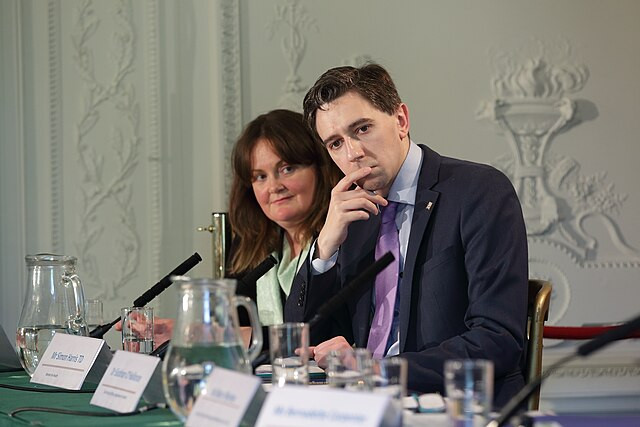Simon Harris, at the age of 37, has been confirmed as Ireland's youngest-ever prime minister, marking a significant generational shift in the nation's political landscape. The Irish parliament endorsed Harris's appointment following an 88-69 vote, succeeding Leo Varadkar in a transition that has captivated both public and political circles. President Michael D. Higgins is set to present Harris with his seal of office, signifying the commencement of his tenure as Taoiseach.
Harris, who previously served as the Minister for Higher Education and Science, steps into his new role amid heightened expectations and the looming challenge of an impending general election. With Fine Gael trailing behind Sinn Féin in opinion polls, Harris's leadership arrives at a critical juncture for the center-right party, which has dominated Irish politics alongside its conservative counterpart Fianna Fáil.
The new Taoiseach's ascent is characterized by a pledge to infuse a "new empathy" into public life, addressing pressing issues such as the housing crisis, climate action, and rural development. Harris's commitment to building new homes and acting decisively on environmental concerns highlights a pragmatic approach to governance, aiming to tackle some of Ireland's most pressing societal challenges.
Harris's foreign policy stance also emerged in his inaugural speech, where he condemned the "disproportionate reaction" of the Israeli government to recent events in Gaza, signaling a continued Irish commitment to international justice and peacekeeping efforts within the European Union framework.
The backdrop to Harris's rise is a political landscape marked by transformation and uncertainty. Sinn Féin's ascendancy, driven by a platform advocating for unification with Northern Ireland and addressing the housing crisis, has disrupted the traditional two-party system. Harris's Fine Gael, having formed a coalition government with Fianna Fáil and the Green Party post-2020 elections, now faces the task of revitalizing its political fortunes against a backdrop of shifting voter allegiances.
Harris inherits a series of domestic challenges, with housing at the forefront. The scarcity and affordability of homes have rippled across various sectors, affecting healthcare staffing, education, and younger demographics. The slow progress in implementing Slaintecare, a national health policy aimed at making health services more accessible and affordable, further complicates the healthcare landscape.
The economic context of Harris's premiership is equally complex. Despite a slowdown in growth in 2023, Ireland's economy remains intricately tied to foreign direct investment, particularly from American companies. The emphasis on supporting small businesses and the family farm underscores Harris's economic strategy, which may include temporary measures such as VAT reductions to alleviate inflationary pressures.
Harris's narrative is one of rapid political ascension, from his early politicization spurred by his brother's diagnosis with autism to his emergence as a key figure in Ireland's political arena. His tenure as Health Minister was marked by significant moments, including the legalization of abortion following a landmark referendum, as well as challenges such as the cervical cancer smear test scandal.
As Harris steps into his role as Taoiseach, the forthcoming general election looms large, with Sinn Féin positioned as a formidable contender. Harris's leadership will be tested against the backdrop of Ireland's housing crisis, economic uncertainties, and the evolving political landscape marked by the rise of Sinn Féin and discussions around Irish reunification.




